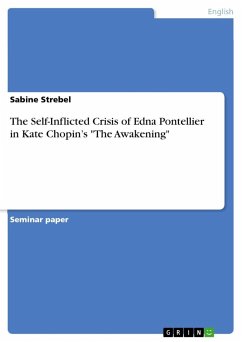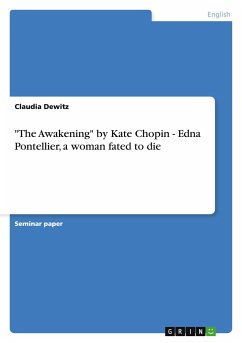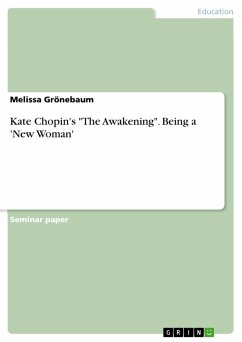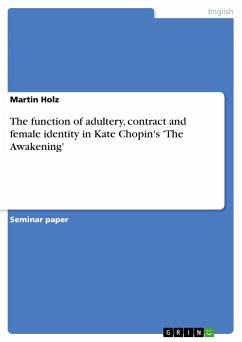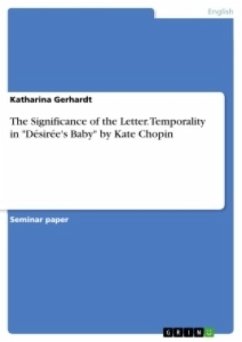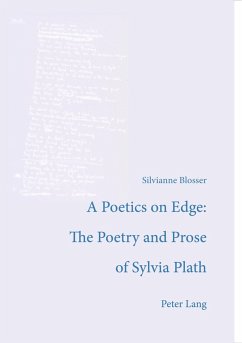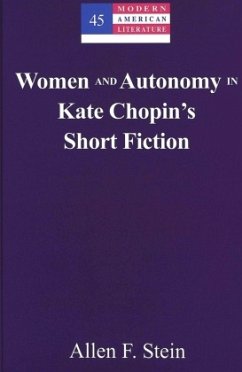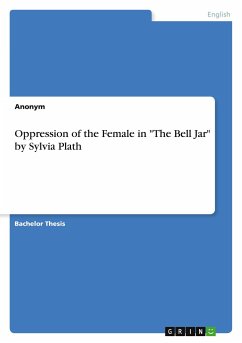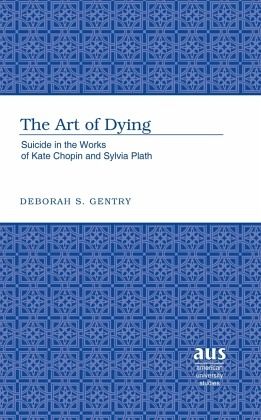
The Art of Dying
Suicide in the Works of Kate Chopin and Sylvia Plath
Versandkostenfrei!
Versandfertig in 6-10 Tagen
71,80 €
inkl. MwSt.

PAYBACK Punkte
0 °P sammeln!
Although the representation of suicide is commonplace in literature, few studies have explicitly dealt with the meaning of suicide in the works of women writers. The Art of Dying applies theories concerning the division of women literary figures into angels or monsters to representative literary suicides of the nineteenth century, including the suicides of women characters in works by Kate Chopin and Sylvia Plath. The Awakening by Kate Chopin is often misunderstood by critics who read it using the Romantic paradigm. Chopin breaks that paradigm by presenting the suicide of Edna Pontellier as he...
Although the representation of suicide is commonplace in literature, few studies have explicitly dealt with the meaning of suicide in the works of women writers. The Art of Dying applies theories concerning the division of women literary figures into angels or monsters to representative literary suicides of the nineteenth century, including the suicides of women characters in works by Kate Chopin and Sylvia Plath.
The Awakening by Kate Chopin is often misunderstood by critics who read it using the Romantic paradigm. Chopin breaks that paradigm by presenting the suicide of Edna Pontellier as heroic. Suicide is a prevalent motif and theme in two works by Sylvia Plath, The Bell Jar and Ariel. An extensive analysis of Plath's last poem «Edge» portrays the suicide of the speaker as a calm and heroic act in keeping with the tone set by Chopin in The Awakening.
The Art of Dying concludes by exploring women's need for self-actualization within the framework of love, marriage, andmotherhood - institutions that have always demanded from women an unnatural and harmful degree of unselfishness. The inherent message in the works of artists such as Chopin and Plath is that women should not have to die in order to live.
The Awakening by Kate Chopin is often misunderstood by critics who read it using the Romantic paradigm. Chopin breaks that paradigm by presenting the suicide of Edna Pontellier as heroic. Suicide is a prevalent motif and theme in two works by Sylvia Plath, The Bell Jar and Ariel. An extensive analysis of Plath's last poem «Edge» portrays the suicide of the speaker as a calm and heroic act in keeping with the tone set by Chopin in The Awakening.
The Art of Dying concludes by exploring women's need for self-actualization within the framework of love, marriage, andmotherhood - institutions that have always demanded from women an unnatural and harmful degree of unselfishness. The inherent message in the works of artists such as Chopin and Plath is that women should not have to die in order to live.



